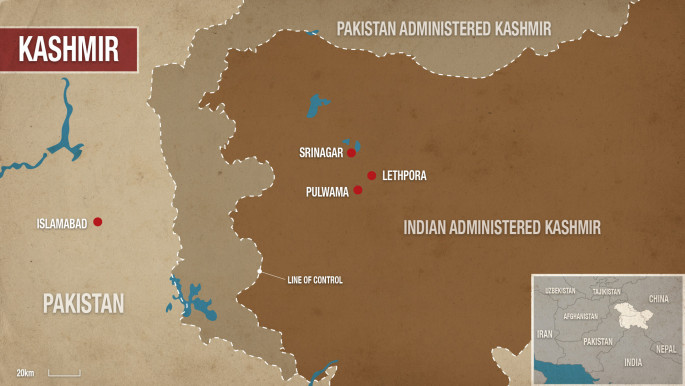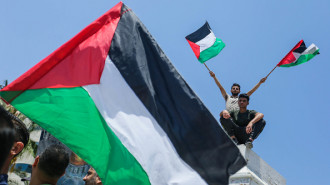UAE backs India over its controversial move to abolish Kashmir's special autonomy
The UAE ambassador to India backed the country's ruling Bharatiya Janata Party after it controversially stripped Muslim-majority Kashmir of its seven-decade-long semi-autonomous status.
An Emirati newspaper published a report in which the top UAE official said Monday's move would "encourage further stability and peace", TRT World reported.
"We expect that the changes would improve social justice and security and confidence of the people in the local governance and will encourage further stability and peace," Ambassador Ahmad al-Banna said.
India's neighbour Pakistan has come out strongly against the move, which it described as "illegal", and downgraded diplomatic relations with India on Wednesday.
Islamabad expelled the Indian high commissioner and suspended trade links with New Delhi, amid a deepening row over the Indian government's move to tighten its grip on disputed Kashmir.
India's president issued a contentious presidential decree Monday revoking Article 370 of the constitution, which gives special autonomy to the Himalayan region, just hours after it imposed a crippling curfew on the valley.
 |
Experts have predicted the move will trigger conflict with Pakistan, which has a competing claim to the region, and reignite an insurgency that has already cost tens of thousands of lives.
Delhi has said that the move is an internal matter. UAE's ambassador to India Banna expressed similar sentiments, saying the issue was an "internal matter" in comments first published by Emirati newspaper Gulf News.
Comment: Princess Haya could flee what many UAE women cannot
But Islamabad has called for the international community to intervene and vowed to take the matter to the United Nations Security Council (UNSC).
"We will call back our high commissioner from Delhi and send back their envoy," Foreign Minister Shah Mehmood Qureshi announced in televised comments Wednesday.
Kashmir has been divided between Pakistan and India since the two countries gained independence in 1947.
A UN resolution calling for a plebiscite to determine the region's future has never been implemented.
An armed rebellion against Indian rule has raged in the Kashmir since 1989. More than 70,000 people have been killed since then, most of them civilians.
Kashmir has long been a semi-autonomous state where only local residents could buy land or take government jobs, but the Indian government's move imposes direct rule and splits the territory in two, turning the Ladakh area into a new state directly ruled by New Delhi.
Modi's government insists this will bring peace and prosperity, but experts warned the move is a gamble that could trigger conflict with Pakistan and re-ignite the insurgency.
The Kashmiri summer capital Srinagar appeared a ghost town on Wednesday as a security lockdown took hold, with armed soldiers on street corners and in front of barbed wire barricades among the very few people to be seen on the streets.
"We know Kashmir is seething, it will explode into violence but we don't know when," a security official told AFP on condition of anonymity.
70,000 troops are believed to have been dispatched in Kashmir. Private mobile networks, internet services and telephone landlines have been cut, isolating several million Kashmiris from the outside world.
Agencies contributed to this report.







 Follow the Middle East's top stories in English at The New Arab on Google News
Follow the Middle East's top stories in English at The New Arab on Google News
![Aid Gaza [Getty]](/sites/default/files/styles/image_330x185/public/2010004231.jpeg?h=cb957c44&itok=NpHeiZFt)

